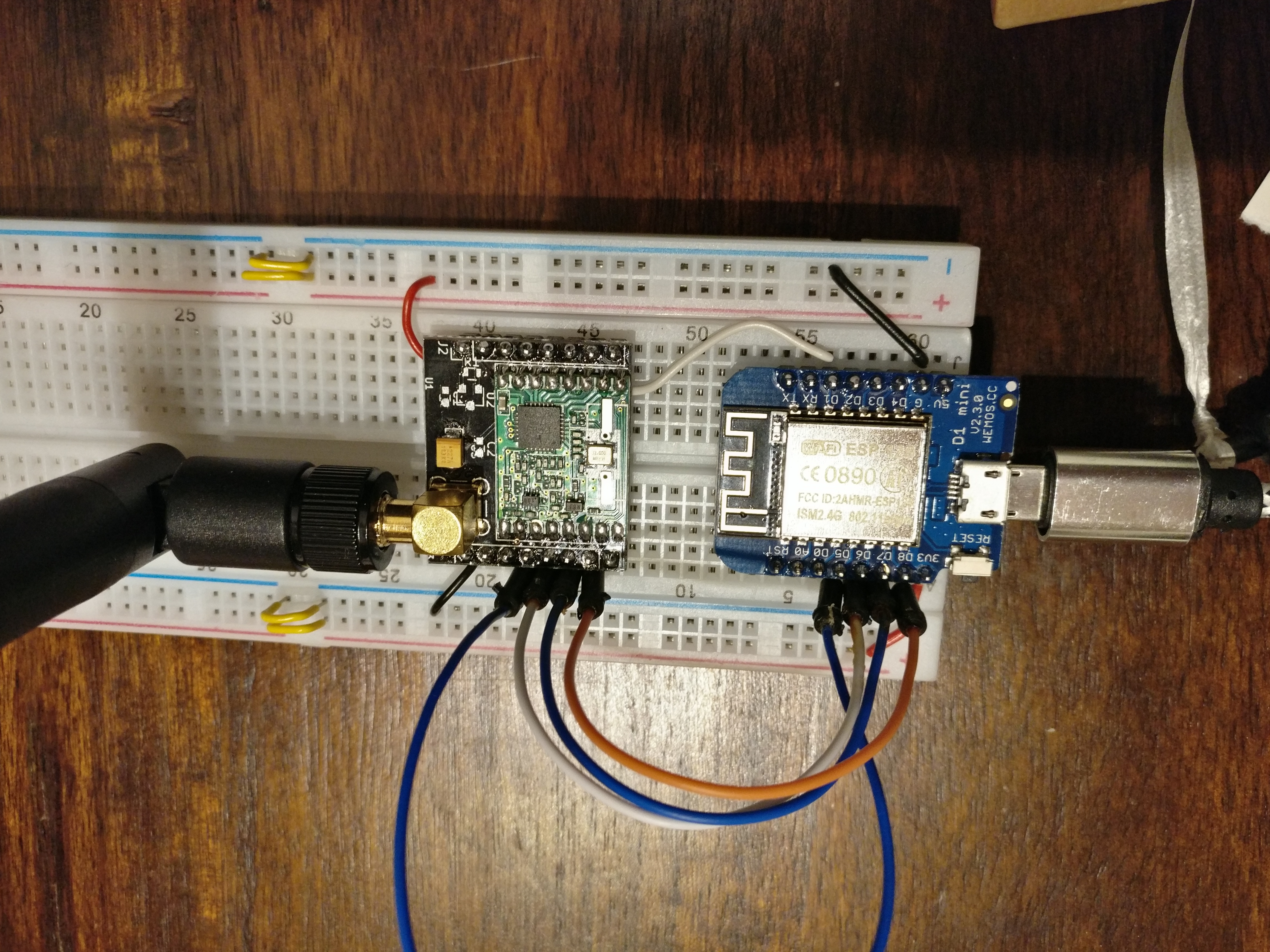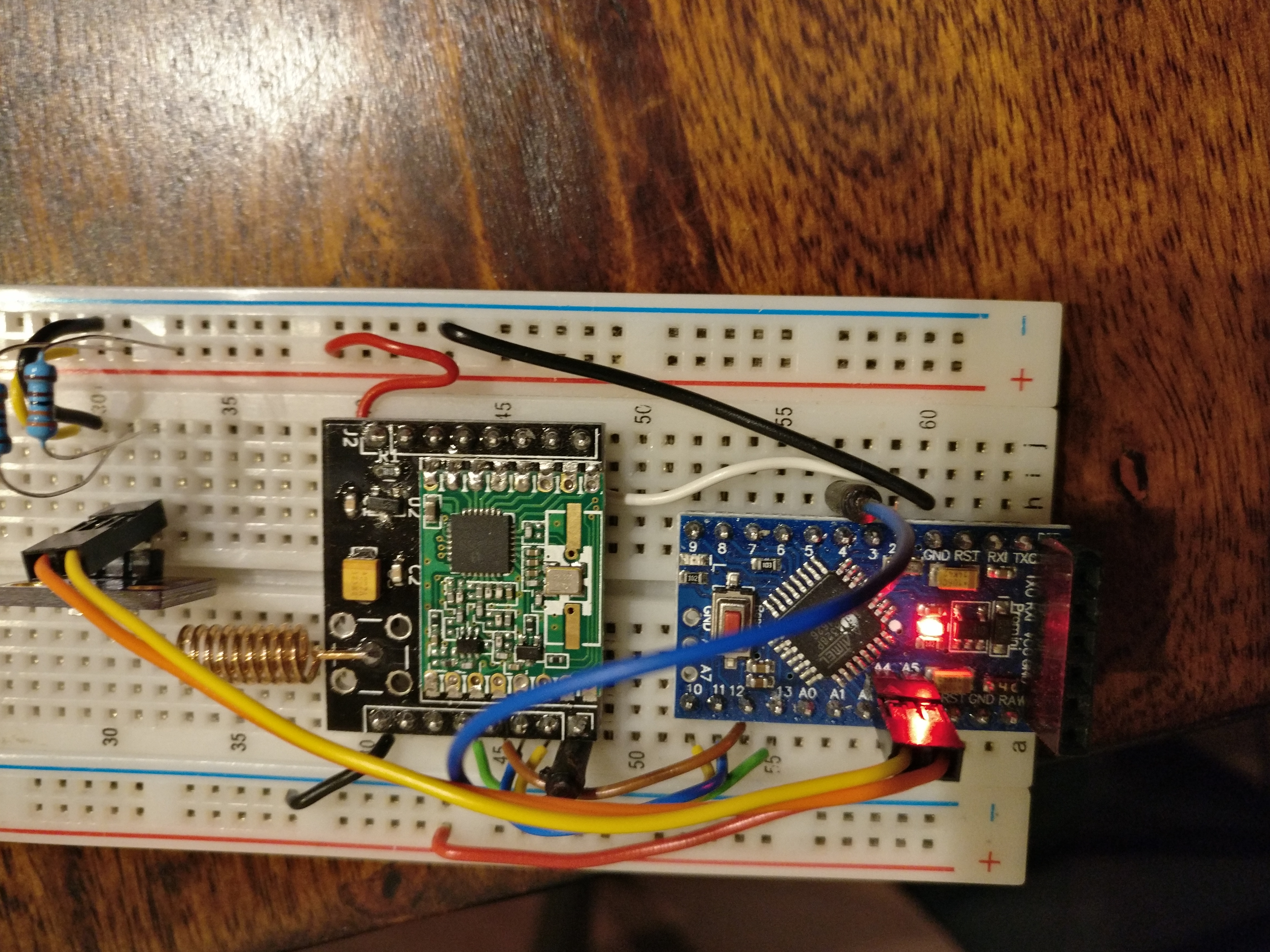Cannot get RFM69HW connection between ESP8266GW and Pro Mini Sensor
-
I don't know why the code is written the way it is. When I verified the rfm69 wiring and wrote the instructions, I decided to not use the default IRQ pin, since it would interfere with boot (as you also have identified). That's why I added the define instructions to set both MY_RF69_IRQ_PIN and MY_RF69_IRQ_NUM.
I am not familiar with the rfm69 driver code, but I think what you suggest should work. You are very welcome to create a pull request. If someone has any objections, they can always make their case during the code review.
-
@mfalkvidd said in Cannot get RFM69HW connection between ESP8266GW and Pro Mini Sensor:
When I verified the rfm69 wiring and wrote the instructions, I decided to not use the default IRQ pin
Maybe note this in the instructions? This cost me 1 year (in which I did not touch the stuff after i didn't work immediately) and a weekend of checking wireing and so on (because with a missing IRQ on the gateway, it looks like nothing is working, while the issue is quite easy to find on a node).
Ok, PR is filed, I also fixed it for the RFM95, which had the same issue.
-
@mfalkvidd said in Cannot get RFM69HW connection between ESP8266GW and Pro Mini Sensor:
When I verified the rfm69 wiring and wrote the instructions, I decided to not use the default IRQ pin
Maybe note this in the instructions? This cost me 1 year (in which I did not touch the stuff after i didn't work immediately) and a weekend of checking wireing and so on (because with a missing IRQ on the gateway, it looks like nothing is working, while the issue is quite easy to find on a node).
Ok, PR is filed, I also fixed it for the RFM95, which had the same issue.
-
@elcaron could you describe the type of note you think you would have noticed?
Great work on the PR.
@mfalkvidd Maybe a "* Different from code default and examples"?
You do not really expect that you have to change defaults when you get a wiring guide from the official site associated with the code, especially when running an example that is explicitly for the platform (the ESP8266 gateway sketch).In hindsight, this was probably stupid, but I didn't even look at the defines below the table, because I thought I was running a working example specifically for the ESP8266 and only needed to find the right pins.
-
@mfalkvidd Maybe a "* Different from code default and examples"?
You do not really expect that you have to change defaults when you get a wiring guide from the official site associated with the code, especially when running an example that is explicitly for the platform (the ESP8266 gateway sketch).In hindsight, this was probably stupid, but I didn't even look at the defines below the table, because I thought I was running a working example specifically for the ESP8266 and only needed to find the right pins.
-
-
As a * that resolves to above mentioned note directly in the table:
D1* | DIO0 | Gray
...
Below: * Different from code default and examplesAs I said, one doesn't necessarily expect that defaults have to changed an ESP-specific example sketch.
-
Adding references to github:
https://github.com/mysensors/MySensors/issues/1075
https://github.com/mysensors/MySensors/pull/1076 -
Ok, my setup is running now (including personalization, encryption, and soft signing) and stuff is published to mqtt.
Thanks everyone for the help! I really like this community.Now I need to resolve the issue with the OpenHAB binding but that's no topic for here.


